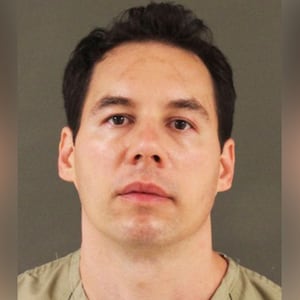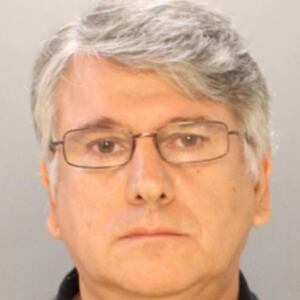An Ohio doctor accused of administering deadly doses of fentanyl to critically ill patients has been found not guilty by a jury made up of seven women and five men after roughly six days of deliberations.
The verdict came after the jury said Tuesday that they were deadlocked. Franklin County Judge Michael Holbrook told the jurors—who began considering a decision on April 12—to continue deliberating.
Dr. William Husel, who worked as an ICU physician in the Columbus area, was indicted in 2019 on 25 counts of murder—11 of which were dismissed at prosecutors’ request last December, three weeks before the trial started. The government reportedly opted to limit its case to those patients who received 500 micrograms or more of fentanyl, but never specified its exact reasoning for the move.
ADVERTISEMENT
Husel, who prosecutors said killed the patients under his care over the course of several years while a staffer at Mount Carmel West Hospital, was fired in December 2018 and the State Medical Board of Ohio suspended his license in early 2019.
As the verdict was read, Husel looked stunned and flashed a brief grin after learning he would walk out of the courtroom a free man. One of the lawyers on his defense team, Diane Menashe, wept quietly when the jury’s decision was announced.
If convicted on any of the 14 counts, Husel would have faced life in prison with the possibility of parole after 15 years. He still continues to battle more than 10 civil lawsuits filed by the families of patients who died under his care.
“The State of Ohio v. William Husel was carefully tried and prepared by both the Prosecution and the Defense,” Franklin County Prosecuting Attorney G. Gary Tyack said in a statement released after the verdict. “The Jury after review of all the evidence was not convinced beyond a reasonable doubt that William Husel was guilty of any of the charges submitted to them. We accept the jury verdict.”
Husel’s lead lawyer, Jose Baez, said in court previously that Husel was simply trying to minimize his patients’ pain as they slipped away. He argued Mount Carmel West didn’t impose limit on fentanyl dosages and claimed Husel’s patients died from being taken off ventilators anyway.
“There is no such thing as a medical murder case,” Baez said in his opening arguments. “And…this is not a murder case, and it’s far from it. William Husel was exercising compassion to his patients and tried to free them of pain and let their last moments on Earth be ones of peace.”
After the verdict, Baez told The Daily Beast that it’s a “relief” knowing the future of comfort care is no longer at stake.
“[Husel] feels relief,” he added. “He doesn’t need to hug his two little girls and worry if it is the last time. It means everything. This jury worked incredibly hard. We are thankful to them.”
At a press conference on Wednesday afternoon, Baez began by thanking his team, describing the trial as a “monster of a case.”
He then thanked the prosecution, calling them “good people” who simply “see the world differently.”
The not-guilty verdict “speaks to not only William, but all of those doctors and nurses out there who are attempting their best to give comfort care in a very difficult situation. And they don’t need to be looking over their shoulders, wondering if they’re… going to get charged with a crime.”
At best, Baez said, the case should have been tried civilly and never should have seen the inside of a criminal courtroom.
“But the reality is, William Husel was an innocent man,” said Baez. “Always has been, and always will be.”
“He certainly does hope to one day practice medicine again, I can tell you that,” he said.
Defense lawyers called only one witness during the trial. Dr. Joel Zivot, an anesthesiologist from Atlanta, testified about the proper use of opioids on dying patients. There is no generally accepted “maximum dose” when a patient nearing the end of their life is in pain, Zivot said, adding in a written report submitted to the court that “fentanyl and midazolam were for the sole purposes of providing the relief of pain and anxiety to patients as they faced death because of concurrent critical illness.”
Baez said Husel never tried to hide anything or cover up his actions either, and he “didn’t have anything against” them personally.
Prosecutors, however, argued that Husel grossly overprescribed potentially lethal drugs, giving people as much as 2,000 micrograms of fentanyl and accelerating their deaths. A fentanyl dose given at that level in a non-surgical setting indicated intent to kill on Husel’s part, they argued.
Some 53 witnesses testified against Husel, including nurses and pharmacists who worked alongside him at Mount Carmel West, as well as medical experts and victims’ family members.
Husel’s wife, nurse Mariah Baird, was not charged criminally but was named in a wrongful-death lawsuit filed by at least one victim’s family. In 2015, Jan Thomas, 65, was taken to Mount Carmel in respiratory arrest after being found unconscious at her home. Thomas, who was diagnosed with having had a multi-embolic stroke, died half an hour after receiving an 800 microgram dose of fentanyl administered by Baird on Husel’s orders, according to medical records.“Before my mom went, she was in good spirits,” Thomas’ son, Christopher, said in 2019. “She assured me that everything would be fine… My mom didn't actually pass, she was actually murdered.”
To date, Mount Carmel has paid out about $20 million in wrongful death settlements with victims’ families.“There is nothing more important to Mount Carmel than the safety of our patients and their trust in us,” Mount Carmel said in a statement after Husel’s 2019 arrest. “Providing compassionate care to patients and their families is one of our most sacred responsibilities. Our thoughts and prayers continue to be with the families of patients affected by this tragedy.”Husel, who rejected a plea deal in February, filed a defamation lawsuit in December 2019 against the Mount Carmel Medical System, claiming that the “false accusations destroyed [his] life.”









